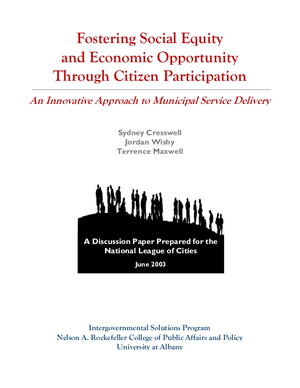
Municipal service delivery is one of the principal methods in which local governments are addressing poverty and social inequalities in their communities. This report explores the case of Rochester, New York, a city that embraced valuable citizen participation in municipal planning processes by cultivating an atmosphere of significant interaction between residents and city employees. The Rochester Model highlights the importance of community resources, the value of citizen participation, the need for innovative planning practices, and the benefits of having a skilled citizenry.
